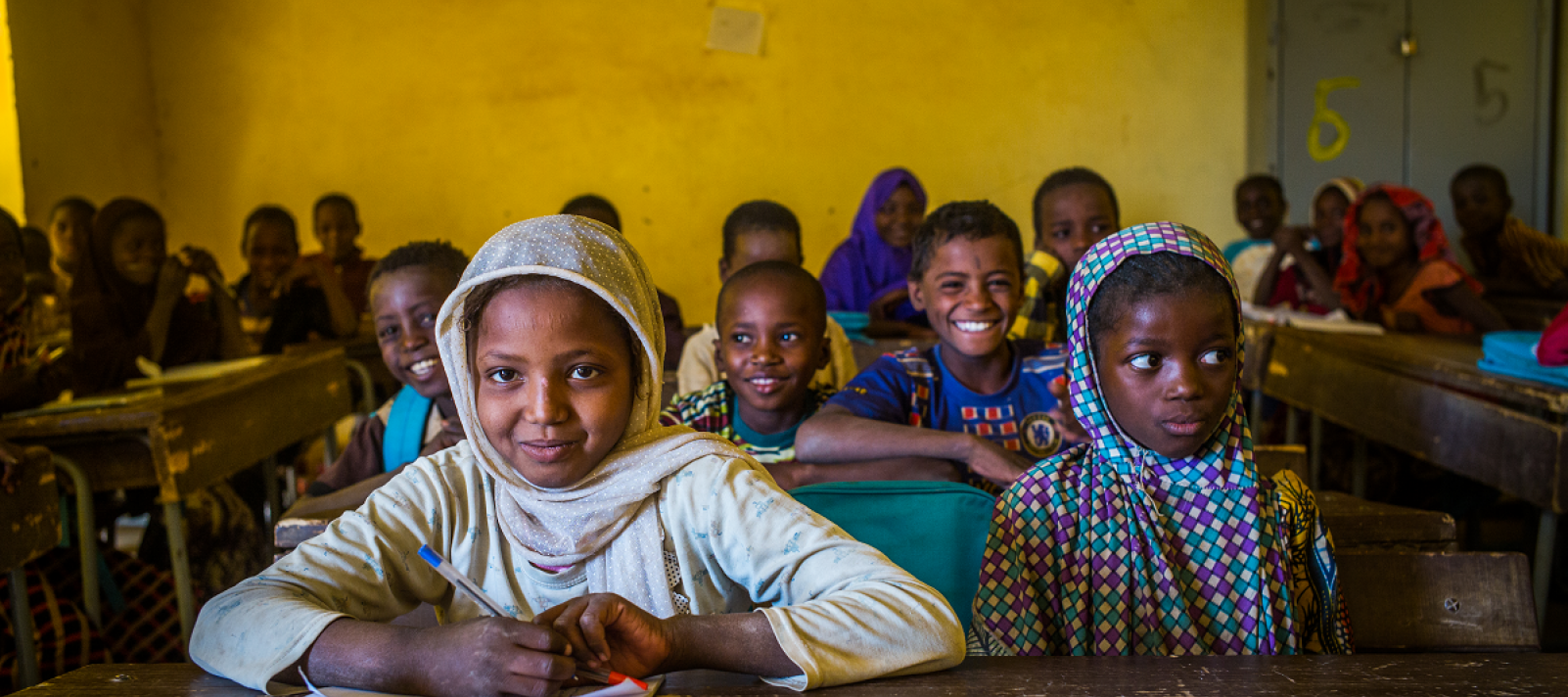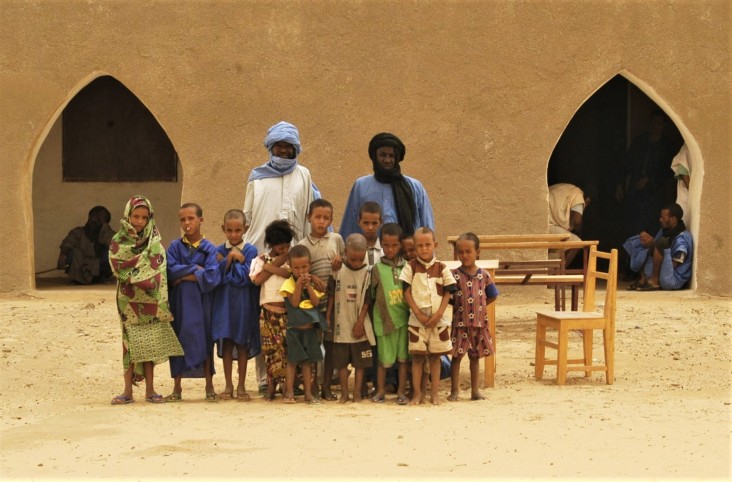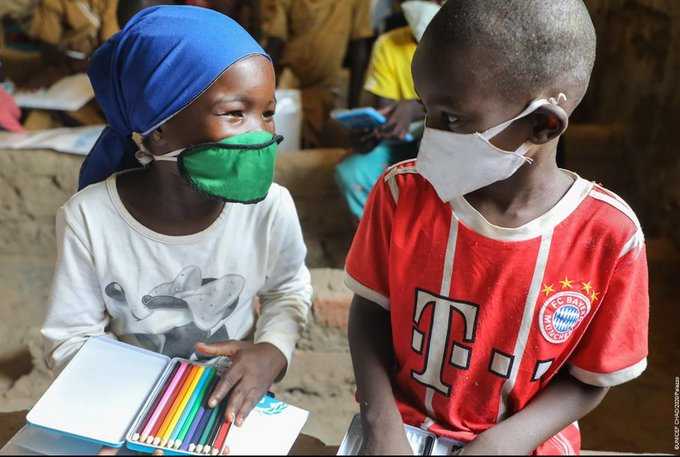Education Cannot Wait Approves US$33.3 Million for Burkina Faso, Mali and Niger in the Central Sahel
In response to escalating crises in the Central Sahel, these new programmes will reach 300,000 children and youth impacted by displacement, conflict and COVID-19
Education Cannot Wait (ECW) today announced US$33.3 million in catalytic investment grants in response to the health and humanitarian crisis in the Central Sahel in Burkina Faso, Mali and Niger. These investments result in a total of US$103 million of ECW investments approved within the last month for refugee, forcibly displaced, host-community and other vulnerable girls and boys in these countries, as well as crisis-affected children and youth in the Democratic Republic of the Congo, Nigeria, Colombia, Ecuador and Peru.
The new multi-year resilience programmes in Burkina Faso, Mali and Niger bring together humanitarian and development actors to jointly deliver inclusive, quality education to children and youth left furthest behind in the Central Sahel. These joint programmes will run for three years, with the goal of leveraging an additional US$117 million in co-financing from national and global partners, the private sector and philanthropic foundations.
The humanitarian situation is worsening in the Central Sahel as a result of multiple crises. The horrific attacks by non-state armed groups against civilians in the villages of Tchoma Bangou and Zaroumadareye in Niger on 2 January which killed at least 100 people, including 17 children (according to UNICEF), and wounded and displaced scores of others is just the latest example of how violence in the region is threatening the future of an entire generation. Civilians, including children – and education – must always be protected against armed attacks. ECW’s investments support the implementation of the Safe Schools Declaration to promote the safety of girls and boys and protect students, teachers and schools from the worst effects of armed conflict.
Girls are disproportionately impacted by these protracted crises and thus Education Cannot Wait investments prioritize girls’ education from pre-school through to secondary levels by ensuring that 60 per cent of the beneficiaries across the three countries are female. Education Cannot Wait also places specific emphasis on reaching those left furthest behind in protracted crises contexts, hence children and adolescents with disabilities comprise ten per cent of those to be reached with this multi-year funding.
“Millions of girls and boys in the Central Sahel live on the frontlines of armed conflicts, hunger, forced displacement and poverty. COVID-19 and a rise in climate-change induced disasters exacerbate the challenges they already face in realizing their right to education. For them, education represents their only hope. However, more financial resources are needed to fully fund these carefully designed and crisis-sensitive joint programmes, which will transform education in the Central Sahel – provided financing is made available,” said The Rt. Hon. Gordon Brown, UN Special Envoy for Global Education and Chair of the ECW High-Level Steering Group.
The programmes build upon the results of Education Cannot Wait’s US$30 million in first emergency investments across the three countries which were initiated in 2019. These first emergency responses are currently reaching over quarter of a million girls and boys affected by forced displacements across the region.
“Children, youth and their teachers are disempowered by the lack of an inclusive quality education and a safe learning environment as they are also targeted in violent attacks,” said Yasmine Sherif, Director of Education Cannot Wait, the global fund for education in emergencies and protracted crises. “I have met them. I have seen both the despair and the resilience of young adolescent girls demanding their right to education and appealing for protection from early marriage. We can change all that and ECW’s investments represent our resolve to deliver hope and a real opportunity for change. Together with our partners, Education Cannot Wait calls on public and private sector donors to join us and urgently close the US$117 million funding gap and complete ECW’s catalytic investments in these three joint programmes, for Burkina Faso, Mali and Niger. We have to act and we have to act now.”
Burkina Faso
More than 2.6 million children and youth are out of school in Burkina Faso, with another 1.7 million students at risk of dropping out of school. While the government has made impressive strides in improving its education system, poverty, a lack of documentation, child labour, disabilities, early pregnancies and marriages, and other factors push many children out of school, with just 1 out of 10 continuing on to secondary education.
With a US$11.1 million catalytic grant, the Burkina Faso multi-year resilience programme seeks to mobilize US$48 million in additional funds. Fully funded, the programme will reach 913,000 girls and boys, 60 per cent of whom are girls. The programme specifically targets displaced, refugee and returnee children, children with disabilities and children currently out of school. The ECW seed funding will directly target 144,000 learners in vulnerable situations with a comprehensive package of interventions and will be implemented by UNICEF (US$6.1 million) and Enfants Du Monde (US$5 million).
“In Burkina Faso, the education sector is suffering the negative effects of both the ongoing security and COVID-19 crises. The security crisis resulted in the closure of more than 2,300 schools and a massive displacement of more than one million people. The COVID-19 pandemic further resulted in the closure of all schools in Burkina Faso for several months. I therefore take this opportunity to express my gratitude to Education Cannot Wait for their unwavering support in our efforts to support education in emergencies,” said H.E. Mr. Stanislas Ouaro, Minister of National Education and Literacy for Burkina-Faso.
Mali
Mali faces a serious humanitarian and security crisis. The combined effects of conflict and multi-faceted insecurity and a repetitive cycle of flooding accentuate pre-existing vulnerabilities and prevent sustained access to educational opportunities. Indiscriminate attacks by armed groups against civilians, violence against girls and women, and attacks on state institutions, including schools and health facilities, are common. They result in displacements of populations in a region that is already facing the impacts of climate change, extreme poverty, a lack of economic opportunities and scarcity of basic services. This situation has worsened with the arrival of COVID-19. Currently, approximately 3.8 million girls and boys are enrolled in primary, lower secondary and upper secondary schools across Mali. These numbers suggest that as many as 50 per cent of children are out of school.
With US$11.1 million in seed funding from ECW, the multi-year resilience programme in Mali seeks to mobilize US$30.6 million in additional funding. Fully funded, the three-year programme will reach 370,000 girls and boys, 60 per cent of whom are girls and 10 per cent of whom are children with disabilities. The ECW catalytic grant will be implemented by EducCo (US$2.7 million), Plan International (US$2.7 million), Save the Children (US$3.2 million) and UNHCR (US$2.5 million). The investment will enable partners to reach 90,000 children and youth and support interventions in the priority regions with an emphasis on the regions of Mopti and Menaka with the highest levels of vulnerability. Beneficiaries include refugees, returnees, internally displaced and host community children and youth.
“The Government of Mali expresses its appreciation for Education Cannot Wait’s funding of $11.1 million to support the continued quality education of crisis-affected children and youth impacted by school closures in emergency areas of the country by providing them with diverse learning opportunities,” said Mr. Kinane Ag Gadeda, Secretary-General of the Ministry of National Education for Mali.
Niger
The education system in Niger faces many major challenges. In 2019 just 13 per cent of pre-school, 64 per cent in primary, 29 per cent in lower secondary and 10 per cent upper secondary students were enrolled in school. The investment actively targets crisis-affected regions where these rates are all below the national average. The humanitarian crisis has further exacerbated pressures on the education system. Climate change spurs chronic food insecurity and displacement due to drought. This triggers conflict and cross-border migration, placing significant pressures on the education system.
With US$11.1 million in seed funding from ECW, the overall multi-year response seeks to mobilize an additional US$39.2 million to reach a total of 275,000 children. ECW catalytic grants target 61,000 girls and boys, including adolescents in the Tahoua and Tillaberi regions. Implemented by World Food Programme (US$4.4 million), Plan International (US$3.3 million) and World Vision International (US$3.3 million), ECW funds will reach 19,300 refugees, 2,600 children and adolescents with disabilities and more than 30,000 girls and adolescent girls.
“I take this opportunity to reaffirm our gratitude and appreciation to ECW for approving the multi-year resilience programme to support the Niger government’s efforts over the next three years to help vulnerable children in crisis-affected areas in the country. I appeal to all of Niger’s partners to support this programme by closing the funding gap to ensure that education is not forgotten among the crises affecting Niger,” said Yahouza Sadissou, Coordinating Minister of the Ministries responsible for Education in Niger.
For Press Inquiries:
Anouk Desgroseilliers:
adesgroseilliers@un-ecw.org
+1-917-640-6820
Kent Page:
kpage@unicef.org
+1-917-302-1735



